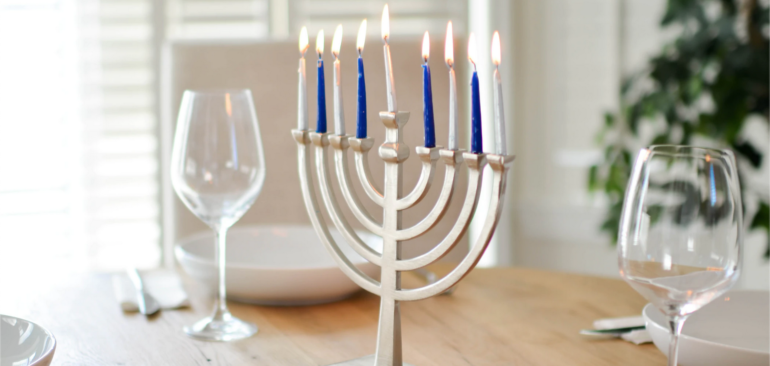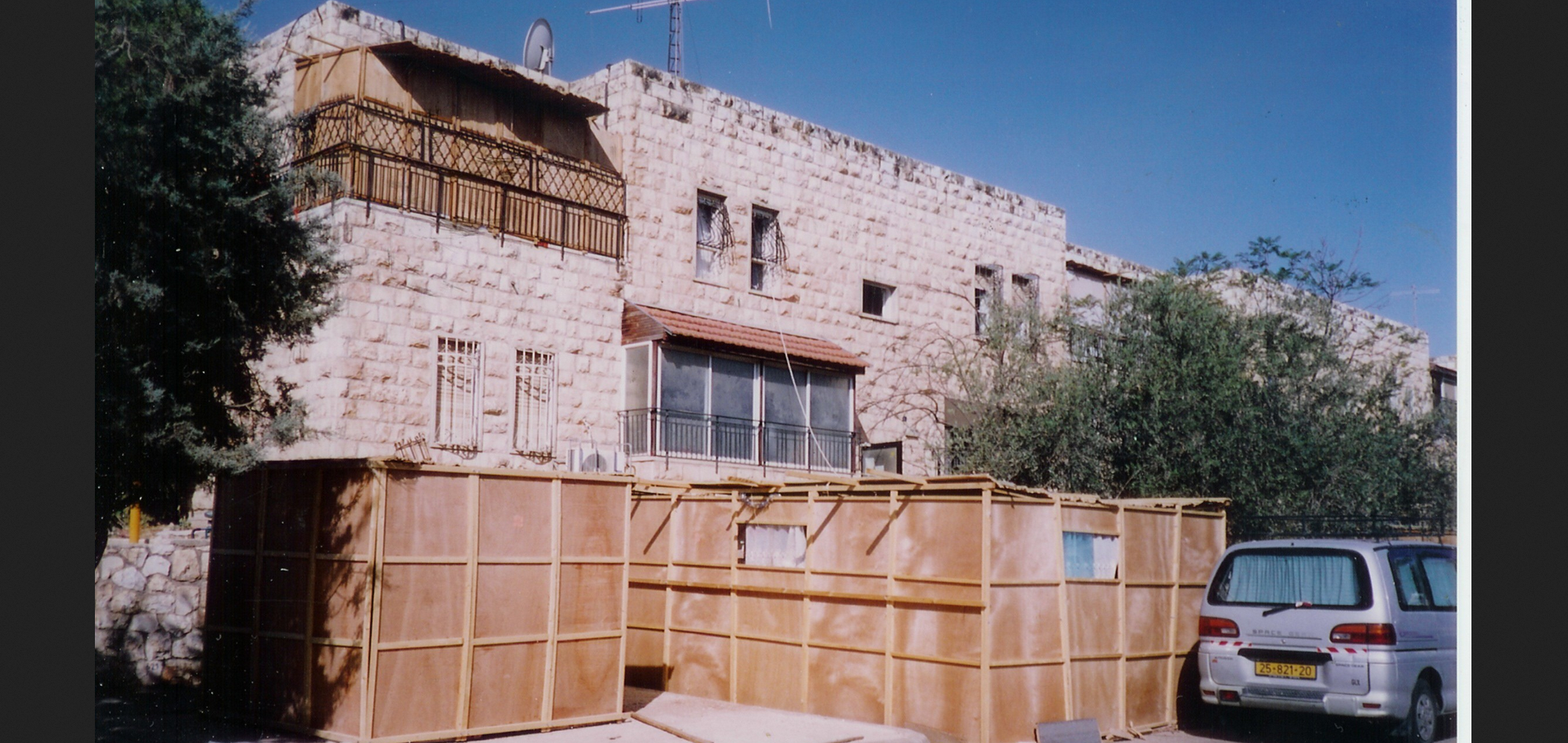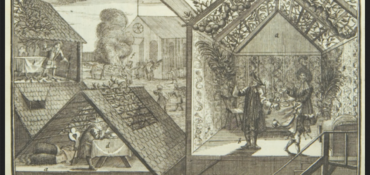
What’s The Significance Of The Number Eight In The Chanukah Story?
Dear Jew in the City-
What’s the significance of the number eight in the Chanukah story?
Thank you,
Noam
Dear Noam –
Sometimes I read a question and I have to ask, “What’s this person really asking?” This is one of those times.
The reason I don’t take your question at face value is because the answer is obvious to anyone with even a surface knowledge of the holiday: after the Temple was defiled, they found only one cruse of oil with the seal of the Kohein Gadol (High Priest) intact. It would take eight days for the Maccabees – who were soldiers freshly returned from battle – to purify themselves in order to make new oil. Nevertheless, the one cruse of oil they found, enough for a single day, miraculously lasted eight days until new pure oil could be obtained.
But, as I said, I suspect you already knew that. You didn’t ask why Chanukah is eight days long, you asked the significance of the number eight in the story, which is self-evident if you know the story. I therefore choose to interpret your question as, “What’s the significance of the number eight, which appears in the Chanukah story?”
The Maharal in his classic work Tiferes Yisroel (2:1) explains that the Torah is the eighth level. It surpasses nature, which was created in seven days. Accordingly, the eighth level appends to creation that which it lacks from nature alone. This is the reason, the Maharal explains, that a bris is performed on the eighth day: man is created by nature uncircumcised. Circumcision is the rectification that elevates him, so the appropriate time for it is on the eighth day.
We see this in numerous other places as well. For example, we count seven weeks from the holiday of Pesach. During these 49 days, the period we call Sefiras Ha’Omer, we traditionally focus upon introspection and personal growth. The fiftieth day – the start of the eighth week – is the holiday of Shavuos, in which we reenact the giving of the Torah at Sinai. This imbues us with that additional spiritual element that we can’t acquire through natural means alone.
Along similar lines, Succos is a seven-day festival on which a total of 70 sacrifices were offered on behalf of the 70 foundational nations of the world. This week-long celebration was (and still is) immediately followed by Shemini Atzeres – the assembly of the eighth day – a “private party” on which a single sacrifice was offered on behalf of Israel alone. This is our own unique, personal connection with God.
Just as Sefiras Ha’omer is seven weeks long, the agricultural Shemittah (Sabbatical) cycle is seven years long. After seven such cycles – 49 years, just like the sefirah period is 49 days – we have the Yoveil (Jubilee) year, in which servants were released and real estate returned to its ancestral owners. This special year is not part of any Sabbatical cycle; it’s its own unique “eighth” thing that exists beyond the natural order of sevens.
There are more mitzvos in which the number eight comes into play, reinforcing its symbolism as a step beyond the natural. For example, an animal was not fit to be offered as a sacrifice until it was eight days old. Just as a human must wait eight days to be circumcised, an eight-day interregnum is necessary before an animal can be elevated in this manner.
Even the Mishkan (Tabernacle), the temporary, portable proto-Temple, reflects this idea. Moshe and Aharon were consecrated for seven days and only on the eighth day could the Mishkan be inaugurated, as recounted in parshas Shemini – Shemini meaning “the eighth.” (Fun fact: parshas Shemini is the only parsha whose name is a number.)
One more: in the Talmudic tractate of Arachin/Erchin (13b), Rabbi Yehuda interprets verses from Psalms to determine that the harps that were used in the Temple were of seven strings but those that will be used in the Messianic era will be of eight strings.
With all of this in mind, let’s revisit Chanukah. The Chashmonaim (the aforementioned Maccabees) were greatly outnumbered by the Syrian-Greek Hellenists. Following the order of the natural world, there’s simply no way the Jewish forces could have been expected to prevail. Their success can only be attributed to a Divine providence that exceeds nature.
Read the text of the prayer “Al HaNisim,” which we recite on Chanukah: “You (God) delivered the mighty into the hands of the weak, the many into the hands of the few… for Your people Israel You performed a great deliverance and redemption as this very day. Afterwards, Your children entered the Holy of Holies of Your House, cleaned Your Sanctuary, purified Your Temple, kindled lights in the courtyards of Your Temple and established these eight days of Chanukah to thank and praise Your great Name.”
This prayer mentions that we lit the Menorah but there’s not a word about the miracle of the oil. That’s because Chanukah isn’t about the oil, it’s about the miraculous military victory. The miracle of the oil was a sign but it’s not the reason for which we thank God every year. On Chanukah, He exceeded nature and enabled those who remained faithful to Him to overpower an objectively superior force.
And that’s the real significance of the number eight in the Chanukah story.
Sincerely,
Rabbi Jack Abramowitz
Educational Correspondent
Follow Ask Rabbi Jack on YouTube
If you found this content meaningful and want to help further our mission through our Keter, Makom, and Tikun branches, please consider becoming a Change Maker today.









